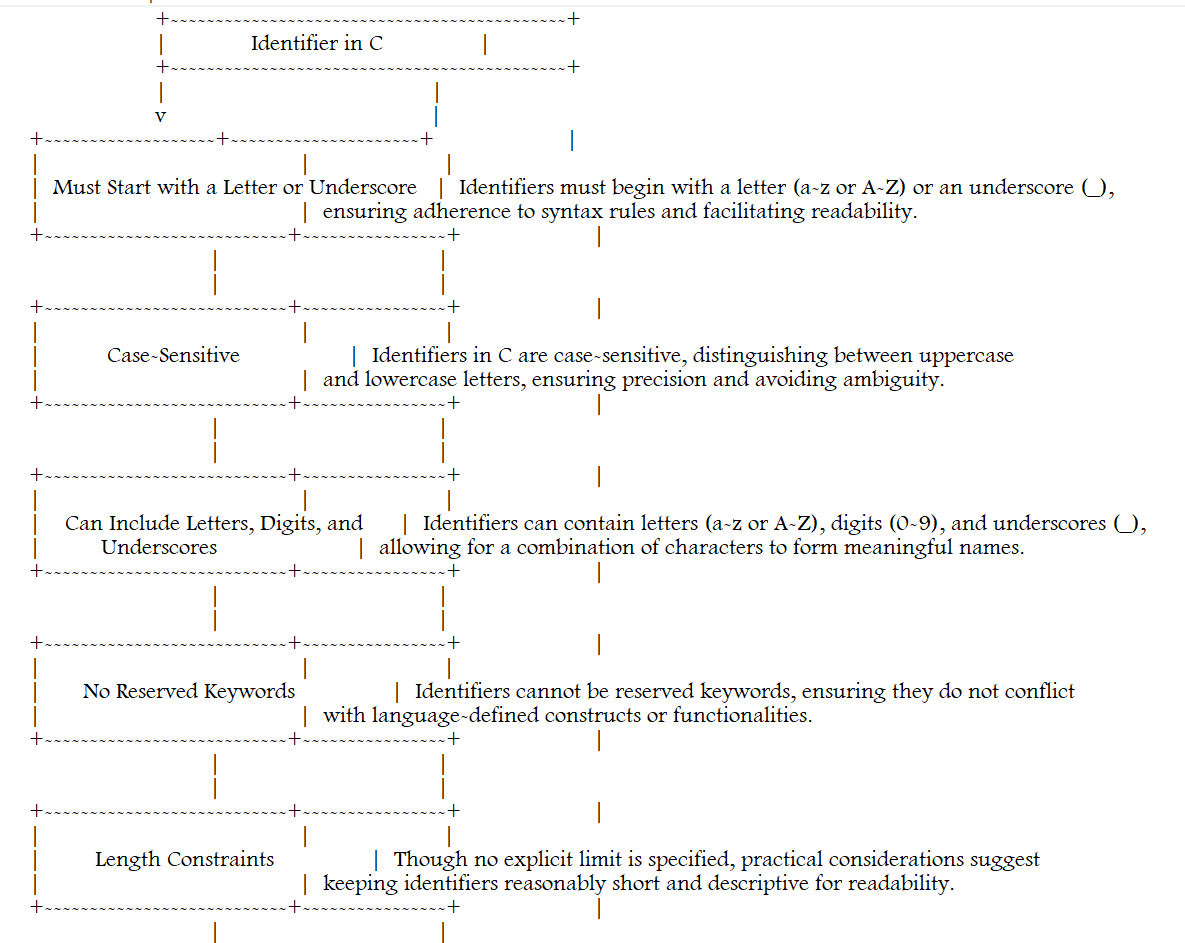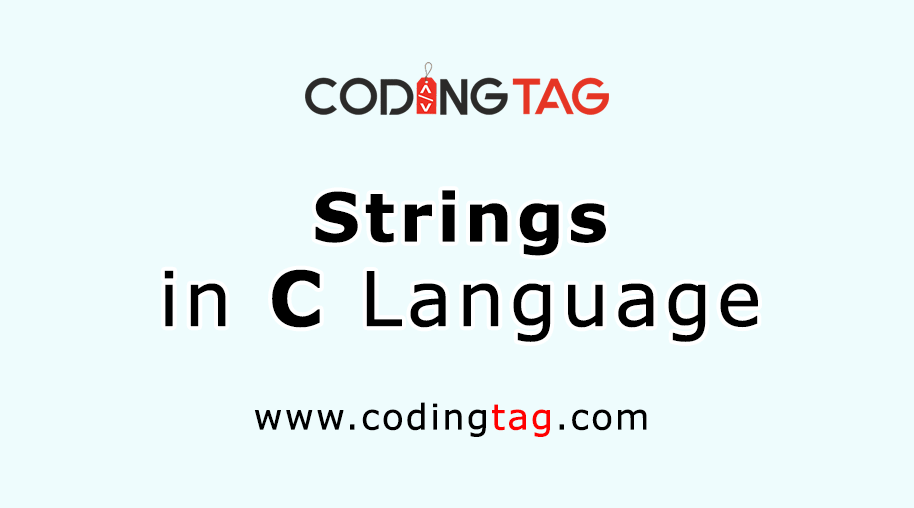C Identifiers
0 604
In C, Identifiers serve as names for various elements within a program, including variables, functions, arrays, structures, unions, labels, and more, providing a means to refer to these elements within the code.
Identifiers are like labels that help in building programs and ensure that code is easy for developers to read and understand.
They have to follow certain rules, such as starting with a letter or underscore and can include letters, numbers, and underscores.
They can't have spaces and characters.
They help to keep your code Organized and Understandable.
Identifiers are not keywords. Keywords in C are like special words with built-in meanings, and they're reserved for specific tasks within the language.
These words cannot be used as identifiers, like variable or function names, because they're already assigned specific roles within C programming.
For example:
If you want to store someone's age in the variable you might call it "age". If you want functions to add two numbers you might call it "add number".
Rules for Naming Identifiers in C

Identifier names are special and unique.
Keywords cannot be used as identifier names.
Identifiers must start with a letter or underscore.
They cannot contain spaces.
Special characters are not permitted.
Identifiers can include letters, digits, or underscores.
Only the first 31 characters of an identifier matter.
Types of Identifiers in C
1Internal Identifiers:Internal identifiers in C are names used within functions or within a specific scope of code to represent variables, functions, or other entities.2External identifiers:External identifiers in C refer to names that can be accessed and used across multiple source files within a program. They are declared outside of any function and typically represent variables, functions, or other entities that are intended to be shared between different parts of the program.Example:
#include <stdio.h>
int main() {
// Declare and initialize variables
int age = 25;
float height = 5.9;
char grade = 'A';
// Display the values of variables using identifiers
printf("Age: %d\n", age);
printf("Height: %.1f\n", height);
printf("Grade: %c\n", grade);
return 0;
}
Output:
Age: 25
Height: 5.9
Grade: A

Share:







Comments
Waiting for your comments